Memory Lost
On the second Tuesday of October 2060, amber leaves drifted through a gentrifying southern exurb of the BosNYWash megalopolis, signaling fall. The retail suite at the heart of the once-desolate office complex now buzzed with renewed energy—a beacon of revitalization in a town clinging to its digital resurgence. The flickering sign of Metro Eye, though sporadic, stood as a testament to both the channel’s fledgling status and its ambitious reach.
Inside, the open-plan office space was alive with activity. The hum of holographic displays and the soft murmur of voice-activated terminals formed a symphony of modernity. Servitor, the Eye’s all-purpose bot, weaved around a person carrying a mug, delivering its message to the workplace: “Approval or disapproval of my intern performance is required by end of business today.”
Truman Phillips tapped a plastic trinket of the labyrinth of Knossos at his desk, ignoring the robotic directive. Despite being in his mid-30s, a streak of adolescent defiance etched his face.
His mind raced through the mundane: no global virus, no electrical fire on the L5 satellite, nothing newsworthy. Just a hundred routine messages—except for one from his contact at the Lower Patapsco station. SUBJECT: MURDER CLUE. A sly smile curled on his lips. Taking Brianna out had been a calculated move—not for romance, as she lacked the spark he sought, but for the invaluable back-channel police intelligence she provided.
As he read the message, hazelnut brew at his lips, an instant message popped up on his compad:
Come c me
The queen bee summoned her drone.
Truman’s fingers drummed nervously on the sleek glass door as he braced himself to face his boss.
Shana Kean, behind her imposing desk, exuded a composed demeanor honed through years in the media industry. Her fingers barely twitched as she placed them neatly on the desk, her sharp, unyielding eyes boring into Truman.
“Shana, I’ve got a new clue in the murders story,” he announced, trying to mask his anxiety.
“You tell me the same thing every Monday, but I haven’t seen the final article yet. Why is that?” She gave him a searching look. “You don’t look well, Truman. Were you out imbibing late again last night instead of wrapping up the investigation?”
Truman knew it was time to pull out one of a journalist’s best tools—who. Truman began, “They found Bro RJ—real name not yet known—poking around a dilapidated barn off Tiller Road. Police say certain items in the barn are loot from recent robberies.”
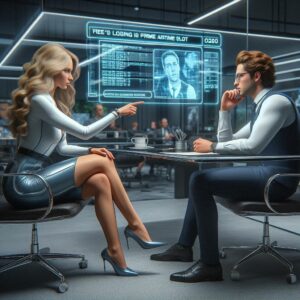
“Too little, too late.” Shana’s voice was steady, slicing through the air without hesitation. “Our subscribers have been tuning out of your program and not returning. You’re too negative. Truman, I’m giving you some time off your regular slot.”
Truman’s composure faltered, his rebellious spirit clashing with the gravity of the situation. His palms grew clammy as the weight of Shana’s words sank in. His dreams of digital stardom seemed to evaporate before his eyes, replaced by the harsh reality of the competitive landscape he had underestimated. The room felt stifling, smelling Shana’s lavender perfume suddenly overwhelming.
But his youthful attitude shrugged off the blow quickly. He straightened his spine, a defiant spark reigniting in his eyes. “I’m making progress on the murder cases. In a week…”
Shana waved her hand to cut him off. “I’ve made my decision. You’re scaring off the audience.”
He shook his head. “But the burg is dangerous. Especially now. Are we to treat them like reasonable adults or as ostriches with their heads in the sand?”
Shana said, “I’ve hired a new guy, Alejandro Vargas. I’m going to try him in your slot for now. He will start by praising police progress on the case, then give a factual report, without juvenile histrionics. That’s the plan.”
Truman tried to keep his voice steady. “Who is this Alejandro?”
Shana smiled, a tight-lipped expression that didn’t reach her eyes. “If you were in the office more often, you would have met him already. A group of us will toast his arrival at Ambrosia Dreams tonight. You can meet him then.”
“Darn, I can’t tonight,” Truman said, his voice tinged with sarcasm. “So, I’m not totally fired?”
Shana tapped her compad to his. “That’s the info for a new vidcast. Professor Albert Machter, an eminent German roboticist, died on an extended visit to our town last Thursday. He pulls a lot of weight at the university. They’ve asked that we do a segment on him and his life’s work. Liesl Richter, his assistant, will be your contact.”
Truman stood up, his chair scraping against the floor with a loud protest. He’d heard enough. “An obit. Not my cup of tea. Exposing the name of the villain who’s killing citizens is. That’s my journalism. Not a leisurely read for someone taking a crap or half-dead in a rocking chair.”
Shana’s eyes narrowed. “Gross coarseness has no place in this office or in our broadcasts. Take this change of pace to bring your delivery up to your sleuthing ability. I want an outline on Machter by Sunday. Understand? And copy your crime notes to Alejandro. That is, if you want your solar credits deposited in your crypto account at mid-month.”
Truman stormed out of Shana’s office, his anger barely contained. As he grabbed his jacket from the coat rack, a gym bag, a couple of hats, and a lunchbox tumbled to the floor. He continued for the exit.
Servitor wheeled over. “Truman Phillips, before you leave, you must evaluate my copy.”
“Shut up, Slob-bot. Clean this mess up,” Truman snapped, his frustration bubbling over.
If Shana thought she could humiliate him by pulling him off his show—a show he depended on to raise his recognition with nubile women—she had another thing coming. He’d show her. Maybe at a rival outlet. But first, he had to keep the money flowing in. He spent his salary as soon as he earned it. He sometimes spent it before his salary was even deposited. Damnit.
His hands shook slightly as he rushed outside, unable to face the uncomfortable knot of emotions twisting inside him. Easier to push them down, to drown them out.
He needed someone to explain what the old roboticist did that was so great. He had left community college when his podcast opened the door to Metro Eye. Since then, he’d focused on grooming contacts, chasing women, and hiding the holes in his knowledge.
Only one person could explain a roboticist’s work in terms he would understand. But before visiting her, he needed an Ambrosia Cola. A couple of them. The rum and hallucinogenic drink would have to be carryout, though, since Alejandro would be polluting his favorite hangout tonight.
Morgan’s Workshop
Entering the university neighborhood of single-family homes felt like crossing into a different world. The streets bore poetic names that whispered of aspiration and tranquility. Windsong Path, with its neatly trimmed lawns and comfortable homes, starkly contrasted with the gritty enclave hanging on by Main Street and Tiller Avenue.
Trees, clinging stubbornly to their coppery fall leaves, lined the edges of the neighborhood like silent sentinels. Thick bushes, dark and brooding, cast shadows on the narrow street, providing cover for anyone wishing to remain unseen. Though lights flickered inside the houses, their warmth did little to dispel the eerie stillness. Occasionally, the low hum of a police drone gliding overhead broke the silence.
Truman’s sleek, self-driving eV glided to a silent halt at his half-sister Deirdre’s driveway. He scrutinized himself in the rearview mirror, a nervous flutter gnawing at him. Deirdre and her daughter, Morgan, would be quick to judge if he appeared disheveled. Would a flush from the rum or a twinkle in his eye be noticeable, although with great forbearance, his last drink had been several hours ago? He couldn’t afford to be dismissed now. His precocious niece held the key to him, understanding the late professor’s life work.
Finally satisfied he looked presentable, he activated the eV’s gull-wing door and stepped out into the crisp air.

A voice called out as he approached the side entrance, freezing him in his tracks. His sister’s voice? Impossible! She had lost it a year ago after two decades of overusing it in the classroom.
“Alert, intruder.” He understood her words perfectly. They hung in the air, loaded with menace. Truman’s heart pounded in his chest, paralyzed by confusion. The voice continued, “I am armed and ready to release the German Shepherds. You have five seconds to leave my property.” Menacing growls amplified the threat.
Amazed, perplexed, and angered, Truman bounded to the door and rapped loudly. “It’s me, Truman. Not an intruder. Open up, Deirdre! Morgan!”
Dressed in a Marie Curie bathrobe, Morgan swung open the door to the mudroom she had converted into a workshop. “Uncle Truman, you said you’d be over Wednesday. Today’s Friday.”
Deirdre rushed in from the main house doorway, toting a shotgun. She gave him a quick, relieved smile that quickly turned to irritation. Placing the weapon by the door, she moved to her daughter’s keyboard. “W.h.y…d.i.d.n.t…y.o.u…c.a.l.l…f.i.r.s.t?” Her halting, synthesized voice chastised him.
“I did call,” Truman insisted. “But your voice? I heard it outside.” His forehead wrinkled. “Has it returned or not? It was clear and smooth in the warning.”
“That was my doing,” Morgan said matter-of-factly. “It’s phase one of my science project.” Turning to her mom, “He did call, but that was days ago. He wants to talk about Professor Machter.”
Deirdre typed a few words, “W.h.a.t…h.a.p.p.e.n.e.d…t.o…y.o.u.r…c.r.i.m.e…s.t.o.r.y?”
Truman grimaced. “I’ve got another assignment. A piece about the dead scientist.”
Deirdre’s eyes narrowed. “But…your…flush…signs…are…teenage…rebellious…Truman.”
Truman didn’t want her to bring up his past. “Not at all.” He turned to Morgan. “Help me learn enough about this Professor and why his work should interest my audience.”
Morgan, 18-year-old with an insatiable curiosity, leaned forward in her seat, her eyes alight with enthusiasm. She adored her uncle, he had a keen mind but limited formal education. Their shared wonder and endless conversations created their bond. She was determined to bridge the gap between his practical wisdom and the scientific marvels she was learning about in school.
“What do you know about the Martian Mosquito?” Morgan asked, her voice carrying a blend of excitement and gentle encouragement. She knew her uncle could grasp complex ideas if presented in the right way. She wanted to find a starting point, something familiar he could latch onto.
Her goal was clear: she needed to gauge his background knowledge without overwhelming him. Her approach was careful, inquisitive, and patient. She understood that his strength lay in his ability to relate new information to his own experiences. By finding out what he already knew, she could weave in the scientific concepts seamlessly, more accessible to him, and engaging.
But before he could answer, Deirdre sent a new message. “I’m…watching…a…show.” She picked up the shotgun and returned to her room.
“Adios sis.” He waved goodbye, then turned to Morgan. “Any news on her job search?”
His niece shrugged. “She tells me nothing suits her.”
“I wish I could help, but speaking of help, That’s what I need. Of course, I remember the Martian Mosquito. That drone that explored the red planet. Been a while.” He didn’t add “when I was in high school,” to avoid that history.
His niece nodded encouragingly, then expanded upon it. “In 2032, Professor Albert Machter’s drone flew autonomously—that’s the key word—under challenging and variable flying conditions in the thin Martian atmosphere. The exploration drone had to fly on its own, independent of EuroSpace’s turn-by-turn instructions. You know the reason, of course. The time lag between Mars and the South America spaceport. The Martian Mosquito had to manage as well as a human pilot, and it did.”
The alert warning on his arrival still gnawed at him “I get that, but before you go further, tell me why the outside alert sounded exactly like Deirdre, but when she used the keyboard, the result was artificial and tinny.”
“That’s phase two, Uncle. For the canned alert, I had ample time to generate and tune the acoustical output. With the keyboard, I limited the sound engine to two seconds. Not bad for a newly initialized neural net. Did you notice the phonemes merged into words as the net learned to match her typed words to voice recordings from her lectures?”
Truman tried to soften his words. “I didn’t mean to be harsh. I forgot to congratulate you on converting her typing into flowing words. With time, you’ll get her voice pattern down.”
Morgan ignored him. She unscrewed the electronic box that lay between her compad and the audio speaker. Extracting a tiny device with a multitude of shiny lithographic endpoints on one side and maybe a tenth as many on the other, she handed it to her uncle. “Two hundred solars to buy the most basic neural chip with 256 inputs. Training is slow, tedious, and necessary. I can’t waste time, but for you, I set that aside for a while. Ask away.”
Truman wished he had his niece’s focus. “How did the old drone fly autonomously? And what’s the big deal? We see that all around today. Plus, the triumph of the Martian Mosquito was years ago. Why should I or the Eye’s audience care about any of that now?”
She took her time composing her response. “Professor Machter answered that in his Patapsco Science Museum talk. His neural network design and training protocol became the template for all bot creators. I’m following his pathway with Mom’s voice generator, although my neural net has only one-half the complexity as the Martian Mosquito’s digital brain.”
“That has a certain interest,” Truman nodded encouragingly. “What about his personal life?”
Morgan snorted in derision. “You mean beyond the Know-Nothing fanatics who protested at his speech and at every outing while he was here, cursing him as an Anti-Christ? That was so much stress that his eighty-year-old heart couldn’t take it.”
Truman twisted his lips in confusion about the protests but noted it for later investigation. “Why was an old dude like him at Patapsco, anyway? He was a foreigner, wasn’t he?”
Morgan nodded. “Yes, German. His assistant reported that the professor went to Patapsco to tend to a wounded roboticist and aid in his recovery. The man had studied with Professor Machter for two years as a post-doctoral fellow.”
Truman gritted his teeth. His niece clearly venerated the man, but he only knew to be blunt to get facts. “How long was the Professor here before he died?”
“Several months at least, according to Liesl Richter. She’s the assistant who brought the tape of the professor’s speech to my STEM club. She also said that Felix Halloway was improving under Professor Machter’s care. Did you know the professor was a psychiatrist before he evolved into the world’s leading roboticist?”
“Impressive. Interesting.” He tapped a query into his compad. “That name ‘Halloway’ rings a bell. Here it is. Irina Halloway died after a stickup at an eV station in 2058. That must be his wife.”
When Morgan didn’t respond, he looked up. “I have enough to proceed. I’ll vid you if anything new stumps me. Anything else you would care to add before you return to your science project?”
Surprisingly, Morgan looked down and took a deep breath. “Yes, we’re throwing a Project Party on the 13th of next month. Mom has agreed to answer questions with the keyboard to highlight the voice creation. I hope she’s not embarrassed by my device’s imperfections. I expect my science teacher, several of Mom’s colleagues she’s been avoiding, a few science-fair competitors, and my STEM friends. I invited the neighbors, but I don’t expect many to attend. They’re afraid to go out at night—with a murderer stalking Patapsco. That won’t keep you away, will it?”
“Never. My explorations don’t stop because of fear. I wouldn’t miss your party.” Then he remembered her deliberate gathering of wits before she asked. “Do you have a project partner?”
“Not exactly.” She avoided her uncle’s eye. “He told me I better get him an ‘A’ so the rest of the football team wouldn’t haggle about working with a … I can’t say it.”
It was obvious to Truman she had a high school sore spot, too. He didn’t want to say what he thought she meant, but knew she needed to talk. He couldn’t think of gentle phrasing, so he blurted out, “Do you mean about your government-assigned last name? Rift. Morgan Rift.”
She nodded but kept her eyes lowered, unwilling to talk about it.
“You are a fantastic girl, despite the paternalistic government’s hang-up that everyone must bear their father’s last name. You expose the rift between policies and sense. As if your surname affects your character. It actually exposes the characters of others, not you.”
Truman often talked up his beautiful dates, who lacked self-confidence. He went into that mode. “You’re pretty, smart, have an outstanding personality and are lots of fun. Anybody would be lucky to have you as a friend. If he can’t see it, that’s his loss.”
Without waiting for a response, Truman stood up. “I’ll see you at your party expecting your triumph. Thank you for your help with the professor.” Twisting the knob of the outside door, he added, “Wait until I leave before you turn your mother and the dogs on any intruders foolish enough to dare bother this house.”
When his eV turned onto the brilliantly lit Main Street, Truman relaxed, releasing a breath he hadn’t realized he was holding. Professor Machter’s significance made some sense. He could draw a line from the Martian Mosquito to bots his readers knew—servebots, nursebots, and the many bots requiring independent decisions without human intervention. A smug satisfaction warmed him momentarily.
But that warmth was fleeting. Truman knew he had to interview this professor’s assistant as soon as possible, while she was still available. What if she wouldn’t talk? The thought sent a pang of anxiety through him, tightening his chest. With luck, she might let slip other aspects of the professor’s personality that would drive the interest of the non-scientists in the audience.
As soon as the interview was scheduled, he would send Shana a message at the office. She’d better not ignore it. His fingers drummed a nervous rhythm on the eV’s table. His readers wouldn’t reflexively hate Machter’s work like the protesters did. Truman thought about skipping the protester angle, if he submitted an appreciation rather than an obituary. A shiver ran down his spine as he considered the protesters’ rage.
This Halloway guy seemed connected to the first murder in the robbery streak… could Truman work that into the piece? Should he? The idea made his heart race with a mix of fear and excitement. He’d show Shana and the new guy who was top dog in the reporting corps. He laughed to himself, though it sounded hollow in the confined space of the eV.
Had Alejandro decrypted his notes?
If all went right, Truman would be back in front of the camera in no time. Drinking Ambrosia Cola in the afternoon was okay for his brief forced vacation, but he yearned to regain his on-screen position. His ouster could be brief, if the old assistant, Liesl, revealed something juicy.
Turning off Main Street, Truman was close to where the robberies had started. His stomach churned as he remembered the bloodstains on the pavement. He continued down the dilapidated, streetwise enclave that bore names reflecting its country roots. The second murder was in the alley by the small bakery on Gambrill Street, then the third by the antique store a block down on Tiller Avenue. Each location etched itself into his memory, a stark reminder of the danger lurking in the shadows.
Yet things were looking up better than he had expected. He rewarded himself by stopping at Ambrosia Dreams, just a turn away. Just to calm his nerves, he told himself, ignoring the nagging voice that whispered. That isn’t the answer.
Interview at the University
Over the weekend, the season’s hues had deepened, painting the trees in vibrant shades of red and gold. Warm fall sunlight bathed the streets. Truman had spent the time leisurely, drinking more than thinking. The uneasy feeling from his last meeting with Morgan lingered, nagging in the depths of his mind.
Monday arrived with a soft warmth, touched by the faint crispness of fall.
Truman’s eV halted to allow a foursome to cross Windsong Lane toward the 16th hole at the golf course east of the university. Truman barely noticed the golfers, his mind whirling to prepare for the interview. Liesl Richter had been difficult to contact and only agreed to the interview after the weekend, at an ungodly ten in the morning. Truman winced, recalling her officious tone. Damn, who did she think she was? Nothing but a gofer for the professor’s whims. Nonetheless, Truman limited himself to two Ambrosia Colas last night. A sacrifice he intended to make up for after the interview.
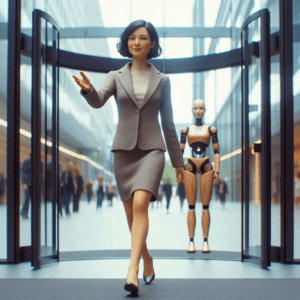
As he walked toward the reception desk, a short, official-looking woman with dark hair pulled into a tight bun intercepted him. “You are Mr. Phillips, correct?”
“Yes, I am,” Truman replied.
“Good. I’m Liesl Richter.” The mid-thirties woman, younger than Truman expected, nodded brusquely and offered her hand in greeting. She wore a demure matching blue checked skirt and jacket. “I’m pleased the American press is interested in the professor’s legacy.” Without waiting for him to respond, she said, “Follow me. I’ve booked a small conference room for the rest of the morning.” Truman noticed a small pin on her lapel—the insignia of the EuroSpace agency.
He steadied himself for responses with words he might have to guess their meanings. “The weather’s been so great. I thought we could grab a spot outside the coffee shop by the lake,” Truman suggested, hoping to change the setting.
“That would be nice,” Liesl said, “but I’ve already arranged a reservation to fit my availability.”
Truman tried to nod with good grace, though he disliked women deciding things for him. As they ascended the stairs, he made a concerted effort not to ogle a shapely student coming down. On the second floor, a cartbot carrying coffee and Danish hustled by them, stopping at a wide door that retracted automatically to let the bot enter.
“Our room, Mr. Phillips” Liesl said.
She took the chair at the head of the oval table. “If I understood you correctly, you’re interested in Professor Machter’s creative achievements. Be fair and respectful with your questions and attitude, or I’ll walk out. Understood?”
Truman took a seat, irritated by her peremptory attitude. He slid into a fake humble pose that had served him well with difficult interviewees. “Of course. My goal is to inform and entertain the audience. Discussions of important achievements please them. They also enjoy discovering the personalities of the great. Since you obviously admire the professor, I don’t imagine that will be a problem for you.”
He turned his compad on. “Do you mind? I don’t want to misquote you.”
“Certainly not, Mr. Phillips,” she said. “The conference room is recording, too.”
“Please, call me Truman.” He scrolled down his compad screen, not really searching for anything, just building anticipation. “Ah, here it is. I’ve studied up for our discussion, but I need a hook to pull in the Eye’s discerning audience. The only local stories about the professor recently, that is until his untimely departure, involve protesters, but that’s a negative. What’s the positive that everyone should remember when his name comes up?”
Liesl looked at the tray the bot had delivered. She selected a delicately cut piece of Danish, dipped it into black coffee, and tasted it. After savoring the flavor, she said, “First, let me dispose of the protesters. A minuscule fraction of fanatics have maligned the professor, claiming his robots violate their God’s right to create life. Their objection reflects a deep misunderstanding of his work, and I won’t allow that to be his legacy. That’s why I agreed to this interview. Before I return to Heidelberg, I want to ensure there’s at least one American obituary untainted by malicious misunderstanding available to readership this side of the Atlantic.”
Her determined attitude convinced him to lead with a scientific question, though the protesters interested him more than cold theories. “What should the public know about the Martian Mosquito autonomous space explorer?”
Liesl took her tea to the window. She gazed at the landscaping about the building. “Professor Machter designed and created an extremely small, lightweight artificial brain that allowed the Martian Mosquito to control its own flights.” Moving closer to the conference room’s floor-to-ceiling window, she looked upward. “Flying in the Mars atmosphere required rapid and precise responses to changes in wind speed and topographical conditions to descend to Valles Marineris’ depths. His robot brain safely navigated miles of towering cliffs, culminating in the discovery of fossil sites that showed life existed on the fourth planet long before humans landed there.”
Truman nodded perfunctorily. “That’s good. I get that. By the way, my niece, Morgan, told me about the professor’s lecture she and her STEM club were allowed to see.”
Liesl lit up. “I remember that club. Was Morgan the one with the speech synthesizer project? She asked insightful questions.”
“That’s her. I’ll tell her you said so. Back to the professor. What did the eminent scientist invent or create to allow autonomous activity, and why did he succeed when other roboticists did not?”
“Good questions,” she said. “Although numerous scientists worked on neurocognition, only Albert Machter had the foresight to strip the brain down to a defined set of essential flying tasks, plus he replaced neural sensors with simpler digital components that streamlined the complexity the simplified brain had to handle. Before the 2032 launch, only he had trained his technique to be operational, on budget, and within weight constraints.
Truman waited for more, but that was apparently her complete answer. He knew it was too dense and dry for his skills and for his audience’s interest. He lifted his coffee. Hazelnut vapor surprised him. “How did you know I like hazelnut coffee?”
“Shana was very obliging when I called to check out your credentials.”
With difficulty, he refrained from saying Shana liked her drone bees docile. “Returning to our topic, would this be a sensible summary? Professor Machter reduced the Martian Mosquito’s brain’s requirement from general reasoning to a small set of specific flying reactions and its limited brain with digital sensors that were cheaper, faster, and lighter than a general purpose neural artificial intelligence.”
Liesl shot him a stare he’d last received from Morgan, but Liesl softened it with a gentle laugh. “You removed half of my explanation, Mr. Phillips, and I had already removed ninety-five percent of a complete answer. However, if that satisfies your audience, your restatement is fine.”
Truman believed she meant to insult him, but he viewed it as an opportunity to tilt her composure. “But has the professor accomplished in the last twenty-five years?”
Liesl carefully finished her morning treat before answering. “That’s where you’re short-sighted, Truman, and please, don’t imagine that interviewing tricks will manipulate me. She dabbed her lips with a soft tissue. “Professor Machter has led the roboticist world since 2036. No longer constrained by space mission requirements, he developed capable neural sensors to replace digital sensors, allowing for continual, on-the-job improvement without replacement or reprogramming. He then coupled that advance with a standardized 1K neural network brain. Those two elements are the base of all autonomous robots, from routine seed and harvest bots to advanced tutor, nurse, and firefighting bots.
“As proof of their importance, during his term as Chief Roboticist of the World Roboticist Collaboration, Professor Machter oversaw the increase in autonomous bots from one million in 2045 to sixty-eight million in the most recent worldwide census. And make it clear in your piece, these bots are not taking jobs from humans but are doing jobs that very few humans apply for.”
Truman glanced at his compad screen. It confirmed her autonomous bot count with numerous citations, though two articles in the United States claimed the robot count was even higher and further argued the rising unemployment rate contradicted claims that bots didn’t replace workers.
“Another concern,” he said, “is some people worry bots are taking over. Weren’t there protests in Paris at the World Roboticist Collaboration this year? Did the professor call the protesters Know-Nothings?”
She put her hand to her lips. “No, he didn’t. That was my phrase. They exasperated me.”
Truman laughed gently, trying to mimic her earlier laugh. “You passed that on to Morgan. She called the protesters Know-Nothings, but seriously, how should I address the protests against his work? Calling the protesters names doesn’t cut it. Are the protesters wrong about the professor creating life?”
Liesl got up. For a moment, he thought she might leave, but she turned and faced him. “Tell them that all autonomous bots, from the fanciest couture-bot to the simplest welding bot, are made, trained, and limited to narrow slices of physical actions by design. They are not independent agents, but artificial agents to assist us.”
She gave him time to think about it, then added, “Let me show you what brought the professor to Patapsco University. Professor Machter willingly gave up his robotics work to help a friend in need.”
Truman followed her out of the room. They walked past offices and workshops until they reached the far-right corner of the massive university building. On the door hung a name sign:
VISITING PROFESSOR ALBERT MACHTER
She opened the door and gestured for Truman to come into the office area and through to the late Professor’s private workshop. The workshop held a jumbled collection of small devices, boxes of components, and strangely, a man in a wraparound immersion helmet, reclining on a soft-cushioned chair by the window. He didn’t react to their entry.
Liesl toggled a switch on a bench and picked up a microphone. Softly, she said, “Professor Felix Halloway, please come out for a minute. An interviewer from Metro Eye would like to say hello to you.”
The man removed the helmet, his brown hair askew, exposing a two-inch-long wound on his forehead and into his hairline. He glanced at Liesl, then to Truman.
“Hello, Professor Halloway,” Truman said to the man. “What can you tell me about the late professor?”
In a monotone voice, he said, “The professor allowed me to see Irina again. In fact, you just interrupted our honeymoon.”
Truman blurted. “That’s a fantasy.” He turned to Liesl, he added, “Not a treatment.”
The man sighed weakly, the extent of his emotional presence. “The professor came and helped me, yet he, too, has left. This world is too painful.” He returned to his AE helmet.
Liesl patted the man’s arm. “Felix, it’s alright. Continue your treatment. I’ll explain to him.”
Leading Truman to the outer office, she whispered, “No questions until we’re beyond Felix’s hearing, but before we go.” Liesl opened a drawer, withdrew a small device, and handed it to him. “Morgan’s excitement about her speech synthesizer was contagious. With a 256 NN chip, she will need months to training it properly. Give her this 1K NN blank. With hard work, she has a chance to train it in time.”
They walked into the hallway and back toward the building’s center. “It’s a shame you are not more psychologically astute,” she chastised him, “though I should have expected your reaction. Now I’ll have to tell you his story. A decade ago, Felix came to Heidelberg as a post-doctoral fellow. Professor Machter took to him right away. After his fellowship ended, Felix returned to America, but they swapped ideas every month. At meetings and conferences, they collaborated routinely. Professor Halloway published notable papers, rising in prominence in the United States robotics community.”
Truman interrupted her, trying to rattle her. “That fossil of a person?”
She turned to him with a fierce glare. “Mr. Phillips, I take into consideration that your abrupt manner and lack of politeness is due to you being an American and a journalist, but if you would allow me to complete my answers, I’d appreciate the consideration and you would get the information you need for your article.”
Truman swallowed his annoyance and waited for her.
“Two years ago, at a charging station near to here, hijackers pulled him and his wife out of the car. When they resisted, Felix Halloway and his wife were both shot. She died, but he didn’t, though he says he wishes he had. It took a year and a half for him to complete physical rehabilitation. However, the bullet ruptured significant areas of his brain. He can no longer make long-term memories and his emotions wildly fluctuate. Knowing the dilemma, Professor Machter designed the helmet. It allows him to reconnect to positive emotions, like the Halloways honeymoon in Jamaica. The professor resigned as head of the World Roboticist Collaboration and came here to help a close colleague in need.”
Pleased with the additional details and the reason for Halloway’s curious emotional flatness, Truman thanked her for her time. “Now that the interview is over, can I offer you event tickets around town?”
Liesl looked away and mumbled, “A man with a niece like Morgan …” then turned back toward him.
She appeared to be thinking aloud. Truman found this side of her intriguing.
“I’m busy,” she said, “setting up a memorial tribute to Professor Machter at his favorite local spot, Lakeside Coffee & Books.”
“That’s where I wanted to have the interview.”
She ignored his backward reference. “You might find the memorial interesting. It’s October 30, in a week and a half. A few colleagues insisted they had to come but needed time to make travel arrangements.”
“I don’t know,” he hesitated. “My piece has to be done before that. And thank you for whatever this is for Morgan. I better be going.” He yearned for a tall glass of Ambrosia Cola with two glowing ice cubes.
“You could think of it as paying me for this interview. Plus you can try my homemade knockwurst. The professor loved my secret garlic spice mixture, and he loved the crunchy snap when he bit into it.” Her cheeks reddened at her modest boast. “Attending would allow you to hear what other famous roboticists thought of him. Perhaps a follow-up piece if your first airing generates any enthusiasm. Think about it.”
“I will,” he said, “but other work may come first.”
“Even before food and pleasure?” she teased, “What a cold world you live in.”
Truman winced. Deirdre had often chastised him, calling him a fool for playing it cool and making his world cold.
He had no time to dwell on it now. His mind raced with the possibilities Liesl’s revelations had opened up. The intricate web connecting Professor Machter, Felix Halloway, and the recent murders beckoned. A sense of urgency gripped him—there was more at stake than just a local story. As he headed toward Ambrosia Dreams, determination settled over him. He would uncover the truth, no matter the cost.
Stay tuned for Act 2 of ‘Memory’s Echo’ coming in February!



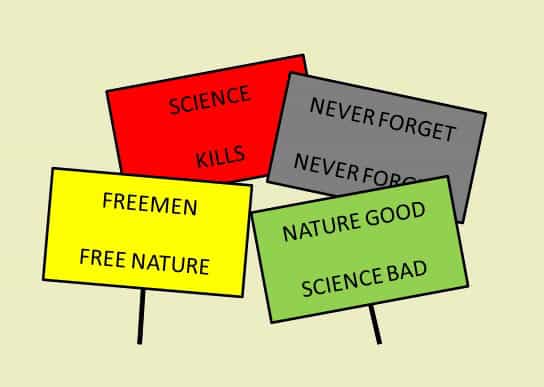
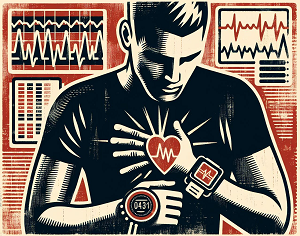


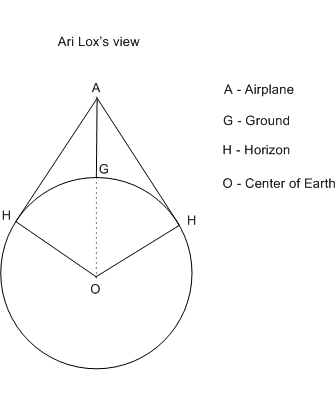

Do you believe bots are humankind’s servants?
Will Truman get back into broadcasting?